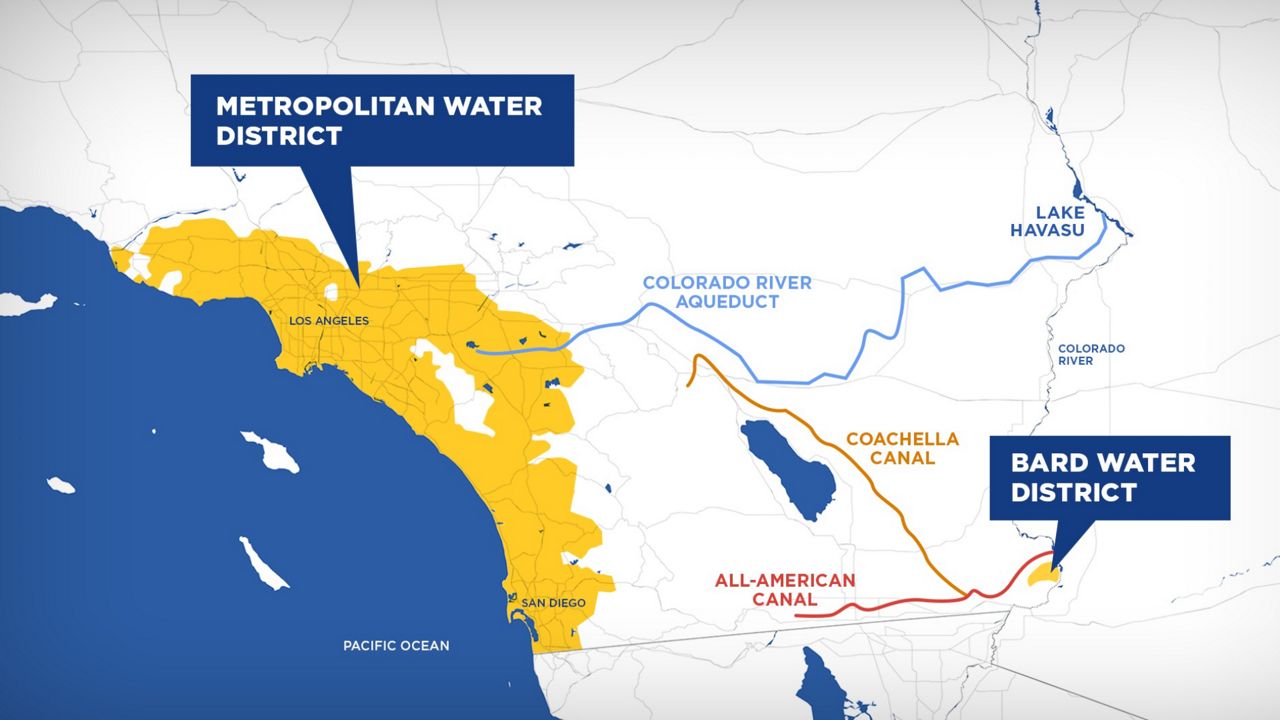LOS ANGELES — If you eat an artichoke, chances are it was grown in California.
And they’re one of the many veggies that farmer Steve Alameda grows at his Top Flavor Farms in Winterhaven, California, that’s in the Bard Water District.
“Those artichokes are edible right now," Alameda said.
Being a farmer is more than a job, it’s his lifestyle.
But the future for California farmers like Alameda is unsettling, with the threat of water cuts on the dwindling Colorado River, threatening his farm’s survival.
“We’re providing food for the country and I feel it’s a very noble endeavor that we’re doing, but usually water flows toward money and people and we’re in the minority when it comes to that," Alameda said.
By minority, he means rural people, versus major urban centers like Los Angeles.
Seven years ago, he entered a pilot program with the Metropolitan Water District for a seasonal fallowing program. He gets paid by the Metropolitan Water District of Southern California to take thirsty summer crops out of rotation to save water in Lake Mead. His fallowed fields will remain barren until August.
“It’s a challenge but, we’re doing it and it seems to be working okay and like I say, down the road, the future, when the cuts come, which I do believe they’ll come, hopefully I’ll be better prepared for it," Alameda added.
The seasonal fallowing partnership that began between the Bard Water District and the Metropolitan Water District has grown to include the nearby Fort Yuma Quechan Tribe. The tribe’s water technician Frank Venegas said the program’s incentives have allowed them to make important investments for the tribe.

“We use some of the funds to regenerate it back into the community and do the restoration work," Venegas said.
That restoration work includes transforming Sunrise Point Park along the Colorado River back into original native wetlands and riparian forests. The living river, as Frank calls it, is a sacred part of the tribe’s culture. If the river were to dry up, they’d lose their identity.
“We all know we’re going to take hits but we’ve got to be able to be secure knowing that we’re going to take the hits and be able to move forward and for it to be beneficial for all of us. If the AG [agriculture] growers out here don’t do good, that means our people don’t do good," Venegas added.
The seasonal fallowing program has mostly gone well for Alameda, but he fears too much fallowing will negatively affect this community that depends on agriculture.
“We are very much concerned about our community and maintaining the community that we have. We need each other," said Alameda.
The Colorado River is woven into the fabric of these communities, and they’re ready to help solve the water crisis to save their culture, and the food supply.



